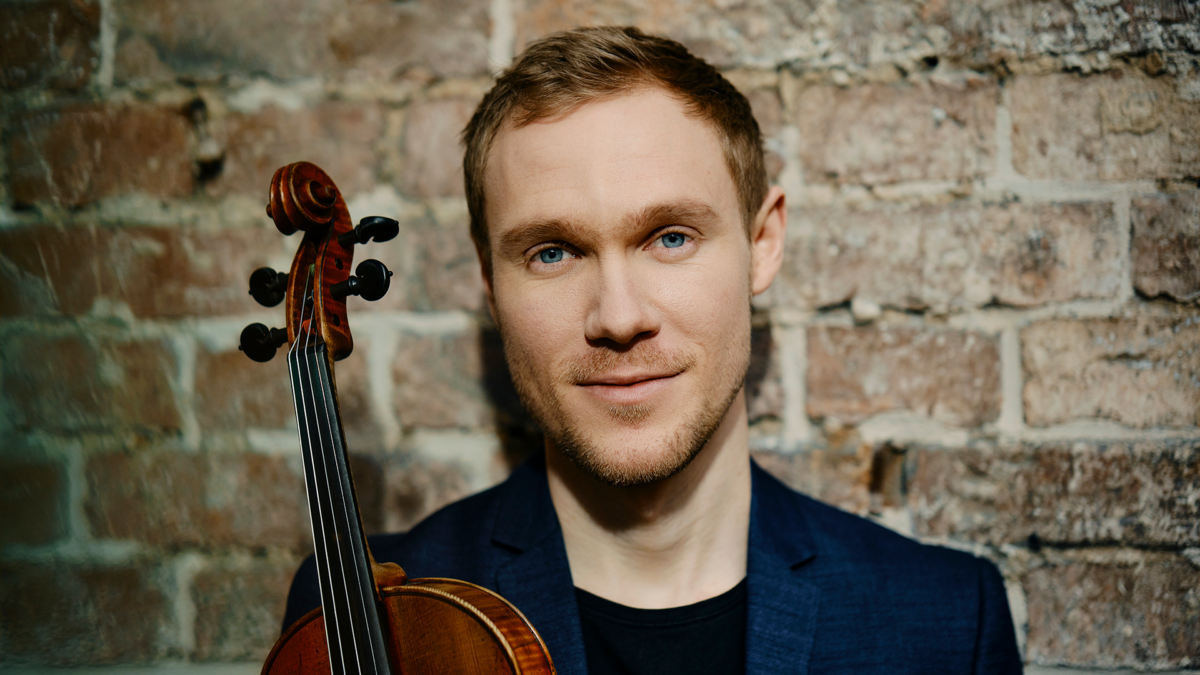Adam Woodward: Playing together is special
NYKY Ensemble and Ensemble Recherche perform side by side on February 11th in Helsinki Music Centre. Recherche’s violinist Adam Woodward answered questions on the upcoming concert and playing contemporary music.

Could you describe yourself as an artist?
I’m a classically trained violinist, but about 10 years ago I started to play more recently written pieces of music. I became more curious about that and now my direction as an artist has shifted to contemporary music. I still enjoy playing classical music, though. Right now, my focus is on ensemble music and string quartets but if given a possibility to play solo music, I find that really exciting.
What kind of aspects of contemporary music are inspiring for you?
First and foremost, I think the wide repertoire is exciting. The other thing for me is that contemporary pieces might offer an opportunity to free oneself a bit and experience new kinds of sounds – in slightly different ways than in classical tradition. That said, I think we still often use classical music’s techniques and types of playing. Contemporary music might present different types of problems, but I think they are possible to solve with the same tools we use in interpreting classical music.
An interesting part of contemporary music is that the musician is always only a couple of steps away from the composer, if not in direct contact. It is possible to find out what the composer’s intentions were while creating the piece and what they are now. As an interpreter, it’s just extremely valuable to have that kind of a link.
How does performing and expressing contemporary music differ from e.g. classical music?
There’s always a unique way a composer notates their music whether it’s Mozart or Carola Bauckholt. The player has to find a suitable interpretation and there are many ways to do it. In classical music, it might be a question of articulation or dynamics: how one plays an eighth note could be different depending on the period or composer, but in the end it’s still an eighth note.
With contemporary music, we often have to use new kinds of techniques, and those techniques might entail a huge amount of variation and interpretation. For example, if something is written to be played sul ponticello – near the violin’s bridge – there already are a lot of possible variations within the technique. Even with a rather basic technique, we still must think about how we actually use it.
Tell us something about the concert’s pieces.
There will be four pieces, NYKY plays two and two are played together with both ensembles. The pieces played by NYKY are by composers Carola Bauckholt and Bára Gísladóttir and together we will play Salvatore Sciarrino and Alex Paxton. From what I’ve heard in NYKY’s rehearsals, it’s looking really good!
Some of the composers have been part of Recherche’s repertoire for many years, one being Sciarrino whose music we have played and recorded a lot. I think I’m most curious about Paxton’s piece as it seems kind of wild and playful. His music is new for all of us, to my knowledge.
I’m also interested to hear how NYKY plays Bauckholt, especially as we just recently played her music in Ljubljana. In her compositions, she uses a lot of bird recordings and then imitates them with notation. Everything is fairly strictly notated and, in that way, quite accessible for all kinds of musicians. Some of the gestures are still in my fingers!
What expectations do you have in working with NYKY Ensemble?
We play together with students quite often at the music conservatory in Freiburg and call these ‘side by side’ concerts. Playing together is special, as instead of just teaching, we can also work on the music together. In the upcoming concert, I think we are able to bring a lot of insight for NYKY’s playing, as many of Recherche’s members are quite familiar with the pieces – their advice is really hands-on.
However, at the end of the day, the interpretation is shared; we work together to find out what happens. The result might not strictly be what we or NYKY has played before but rather a whole new setting. It’s interesting to see how our sounds blend and how we can find solutions together as an ensemble.
What should the audience expect from the concert?
We are excited and I hope the students are, as well. The concert is a great opportunity to come together and learn from each other – hopefully we can present this at a high level for the audience!